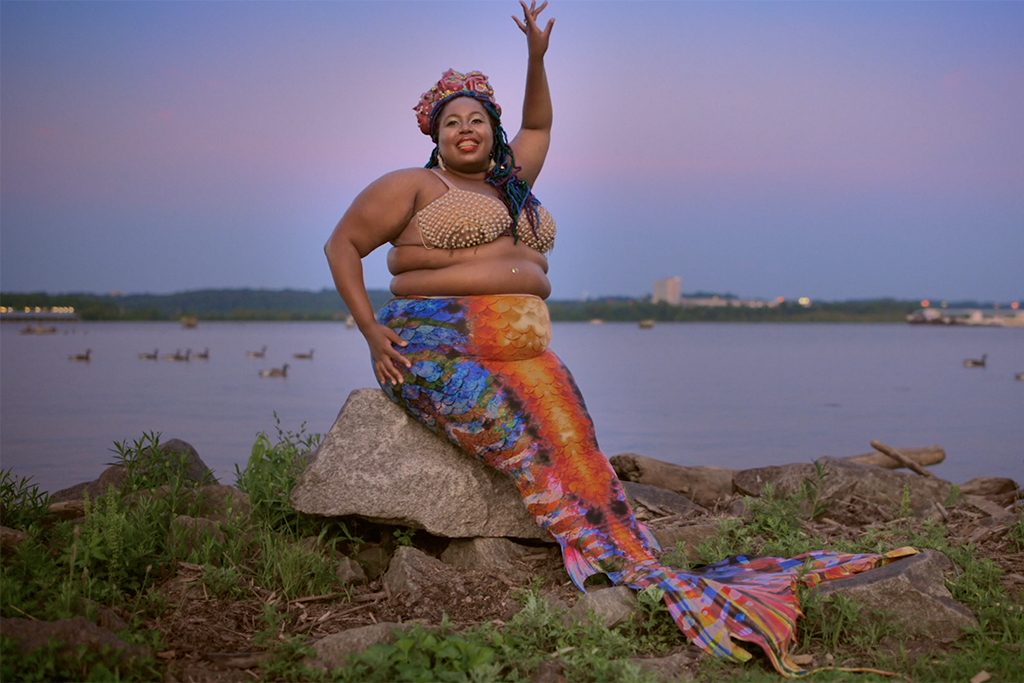Do you remember the first time you thought about your body?
That question — both personal and existential in nature — is how Embodied, a documentary following the lives of five people challenging misconceptions around weight and obesity, opens up.
Embodied’s subjects are varied in terms of their professions — there’s a drag queen, a mermaid, a midwife, a former-linebacker-turned-scuba-instructor and a CEO — but they all share similar experiences with the stigmatization around living in plus-sized bodies.
The documentary premiered at the Tribeca Film Festival last year, but was released across several streaming platforms, including Apple TV+, in mid-March.
It’s an emotional narrative that underscores the changing nature with which weight gain and obesity are being discussed. Instead of being considered a character flaw or personal failing, obesity is instead addressed as a chronic condition.
While that conversation continues to evolve in real-time, the film’s subjects reckon with the embarrassment and shame they felt because of their wait for years and decades at a time.
Another Novo weight doc
One of the most interesting parts of the film is who supported its production.
Made in partnership with Vox Media and distributed by Gravitas Ventures, the film was financially supported by Novo Nordisk, the Danish drugmaker behind the popular GLP-1 weight loss drugs Ozempic and Wegovy.
However, as noted by the film’s production team, while Novo financially backed the project, it did not provide any editorial input.
Rather, Novo approached Laura Delarato, Group Creative Director at Vox Media, and Zee Zakheim, a story hunter at Vox Creative and the film’s screenwriter, about creating a film addressing weight stigma, with a focus on unpacking anti-fatness and platforming interesting people living that unique experience.
This isn’t Novo’s first go-around with a documentary taking a nuanced look at issues related to weight. The drugmaker previously worked with Wavemaker US, a media agency, on the four-part docuseries Thick Skin, which debuted on the Sundance Channel last fall.
Delarato noted that while Novo didn’t influence the film’s direction, the company’s involvement speaks volumes about its own recognition of the maturing perception of obesity as its own GLP-1s have taken off in popularity for off-label weight loss.
“To have Novo Nordisk fund a project like this, it can be very influential, but they didn’t have to,” she said. “They could have ignored this community and denied their autonomy. They could have said, ‘We’ll go another year without size representation on screen.’ But their decision reflects an understanding of the emotional impact of weight-related discrimination.”

Representation matters
Throughout Embodied, interview subjects detail moments from their lives that left them feeling less than due to their size.
A recurring observation was the lack of any meaningful representation in media, as most plus-sized characters were portrayed as goofy, oafish or lazy, which led many to hold those stereotypes about people in real life.
Delarato said the production crew sought to approach the work with intelligence and empathy in order to make a positive contribution to the community.
One of the silver linings to the issues faced by the protagonists in Embodied is the empowerment they feel towards its conclusion.
Zakheim said that one of the film’s main objectives is to spark conversations around representation and encourage viewers to challenge their own inherent biases around weight.
“The spearhead of talking about these things is the most important part,” she said. “You don’t always get it right when you’re the spearhead, but visibility is important to us.”
Director Isabel Bethencourt added she tried to let the interviewees lead with their own voice, calling them “courageous” for being vulnerable and sharing their experiences on the screen.
Accompanying explainers
In addition to the documentary, Vox Media has created a branded version of its explainer series dedicated to obesity stigma and weight discrimination.
If the documentary is the emotional core of the project, Delarato said the accompanying explainers serve as the research heft that goes deeper into the points raised in the film.
She said the explainers underscores not only the history of weight discrimination, but also how weight stigma still harms people from a care perspective and how pervasive it is in the workplace.
The production team noted that while the project is an effort in empathetic representation and dissection of a long-term problem, there are numerous, layered conversations that still need to happen to conquer the stigmas around weight.







